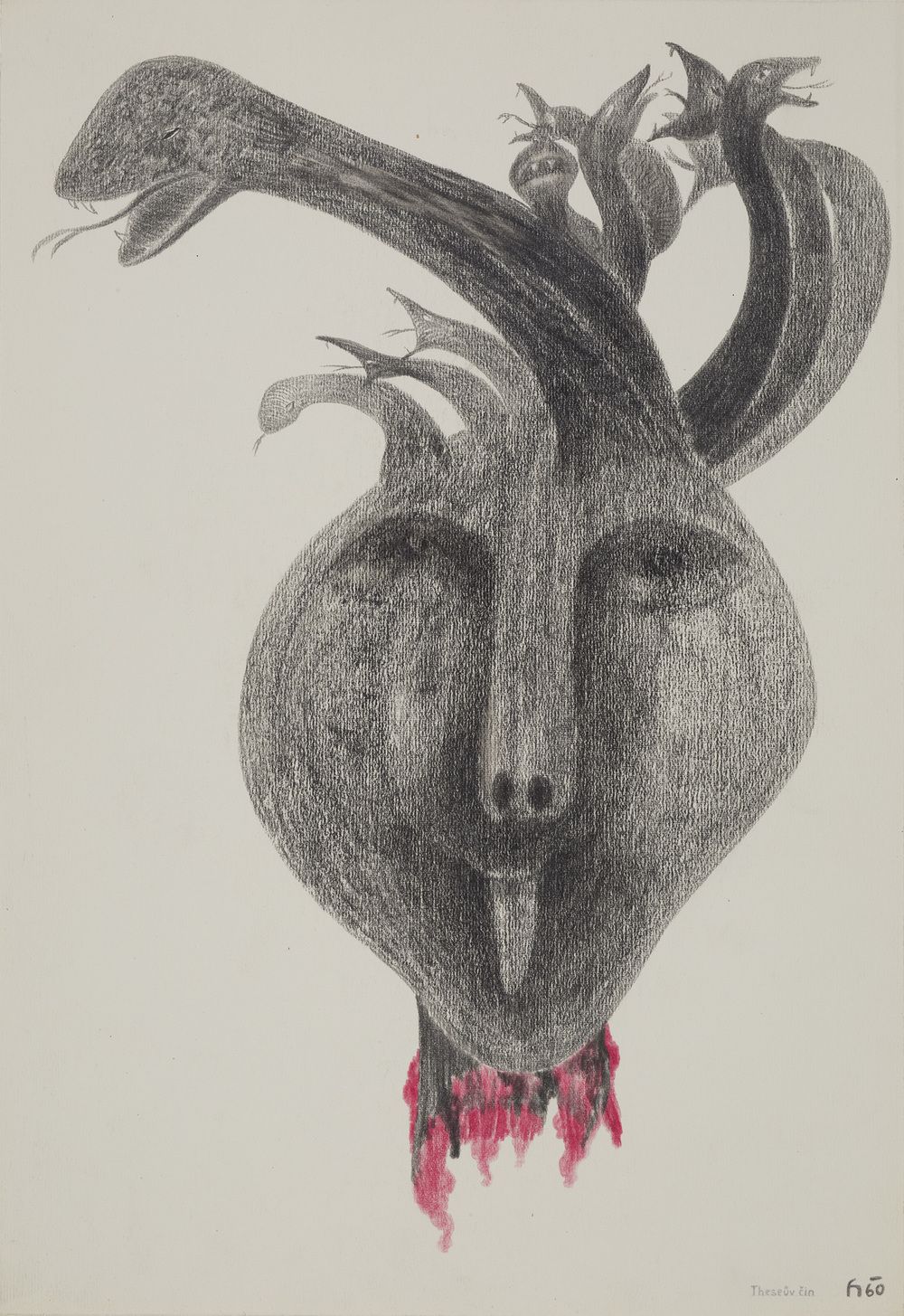 The Act Of Theseus, 1960
The Act Of Theseus, 1960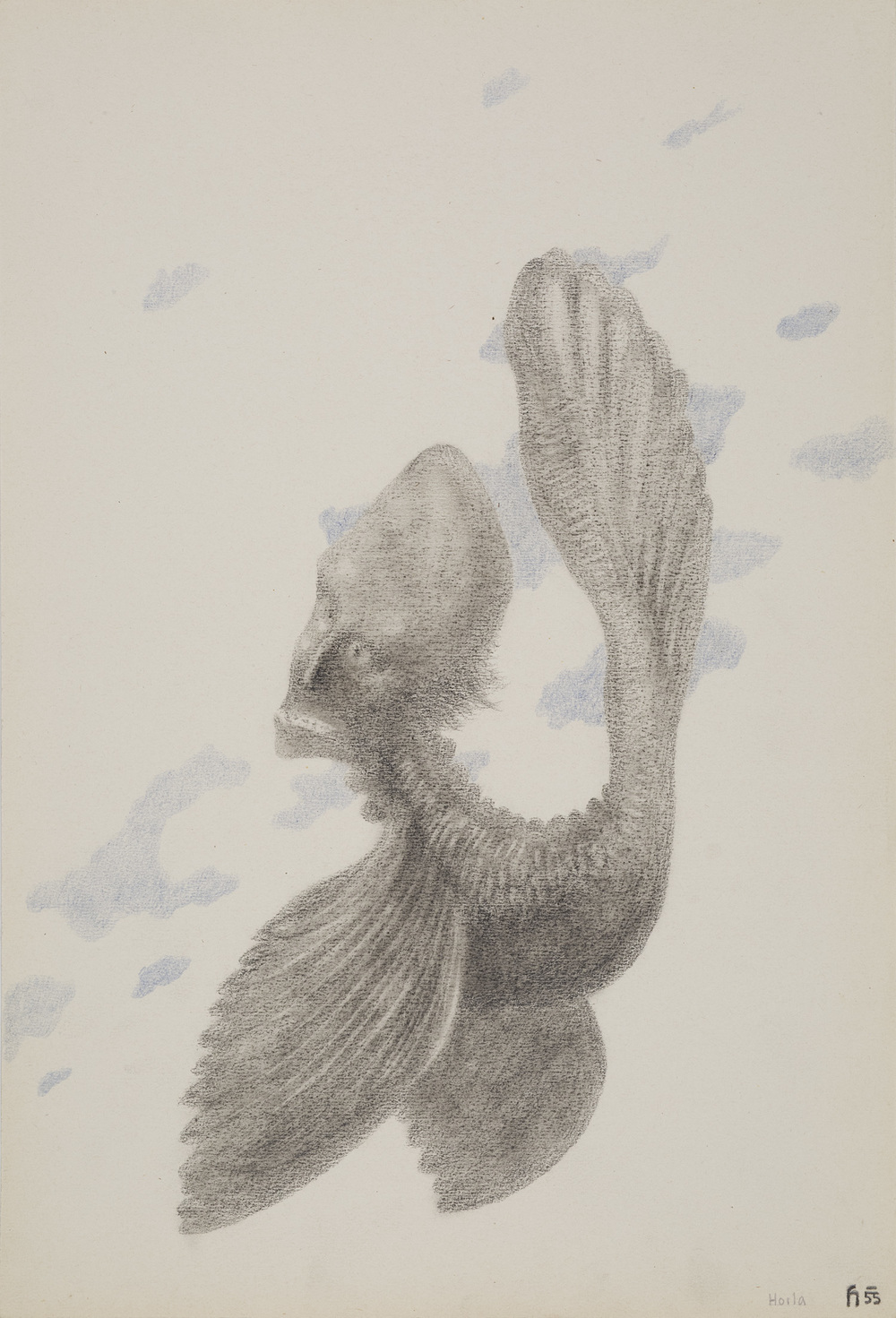 Horla, 1955
Horla, 1955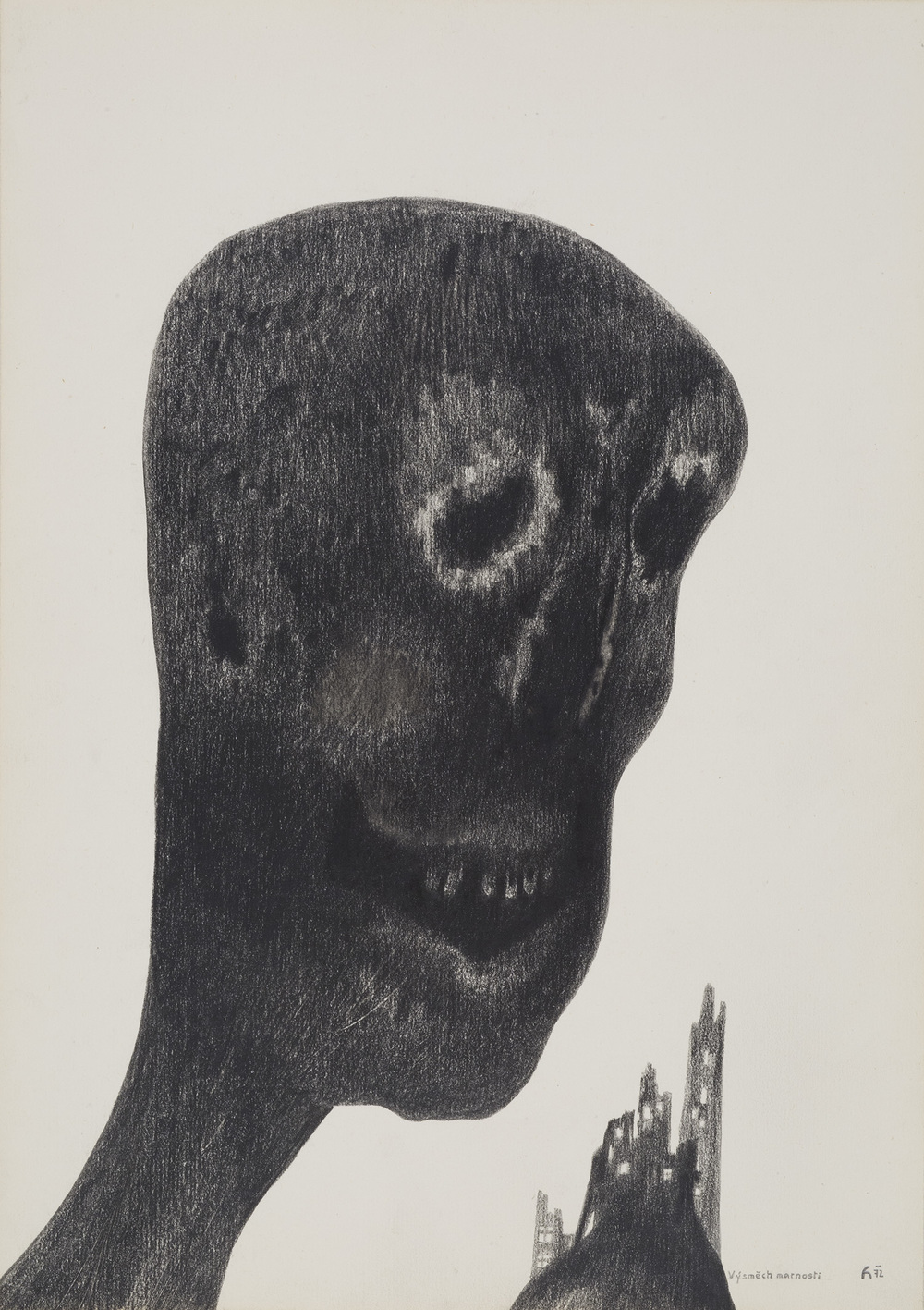 Mockery Of Vanity, 1972
Mockery Of Vanity, 1972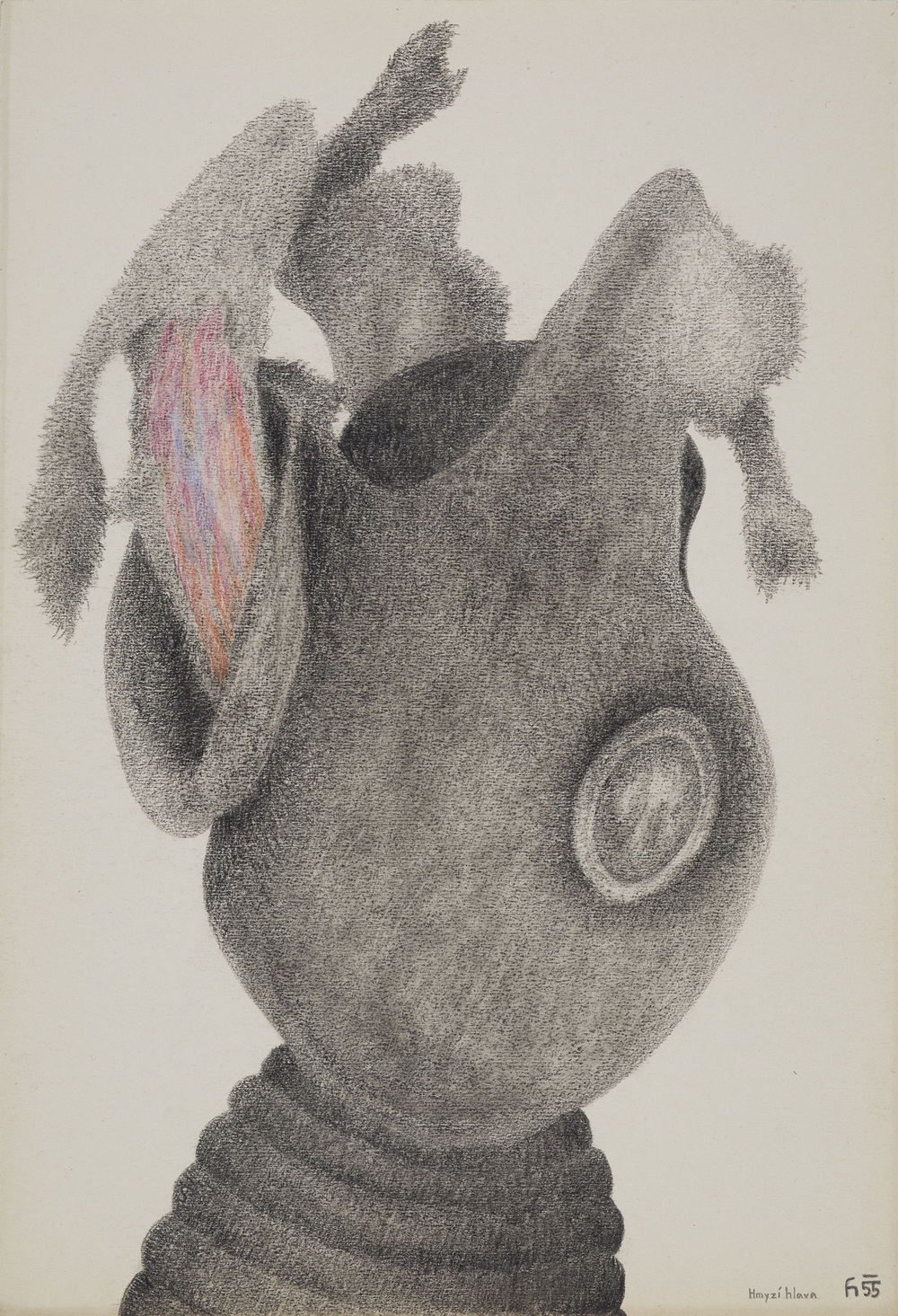 Insects Head, 1955
Insects Head, 1955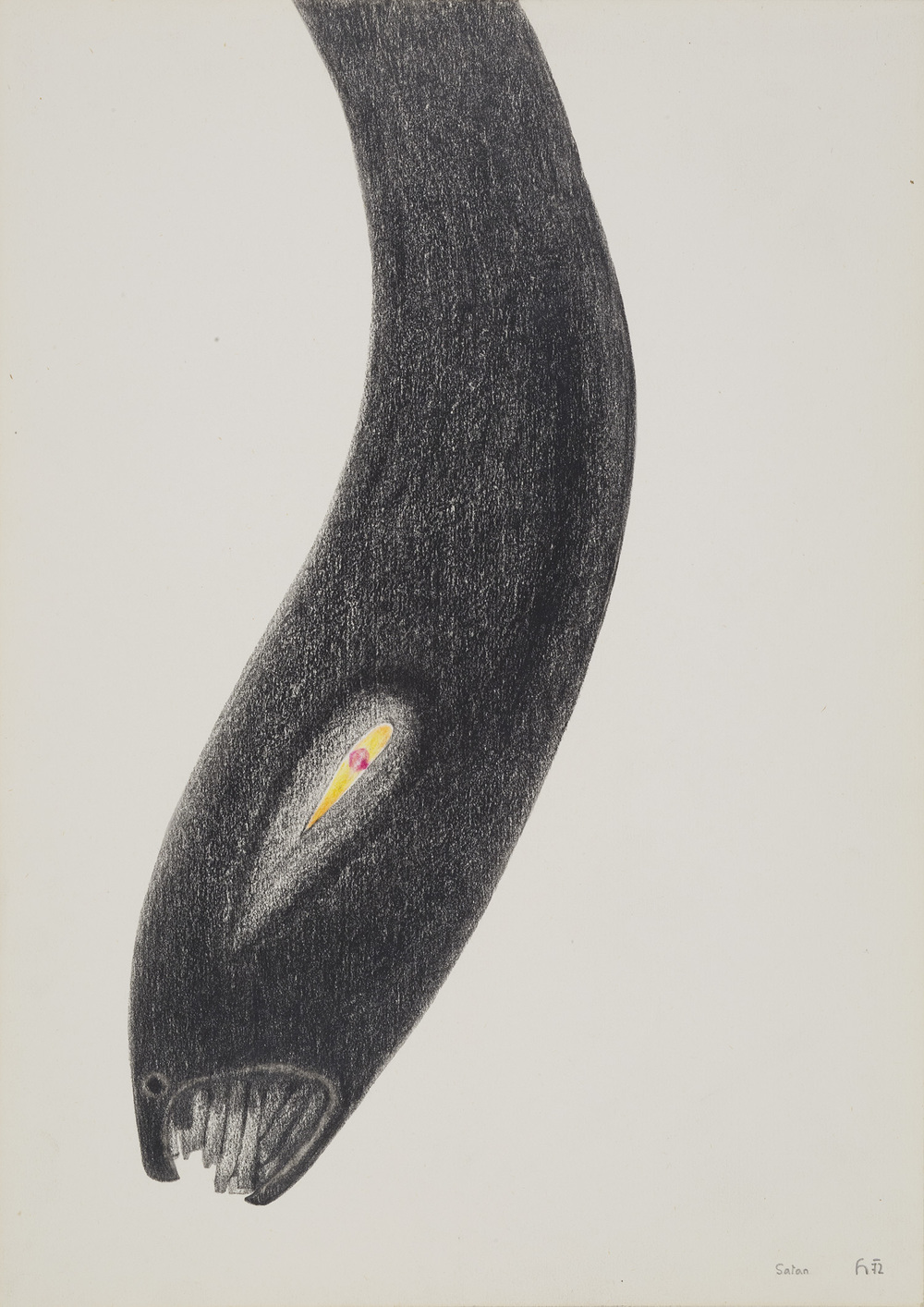 Satan, 1972
Satan, 1972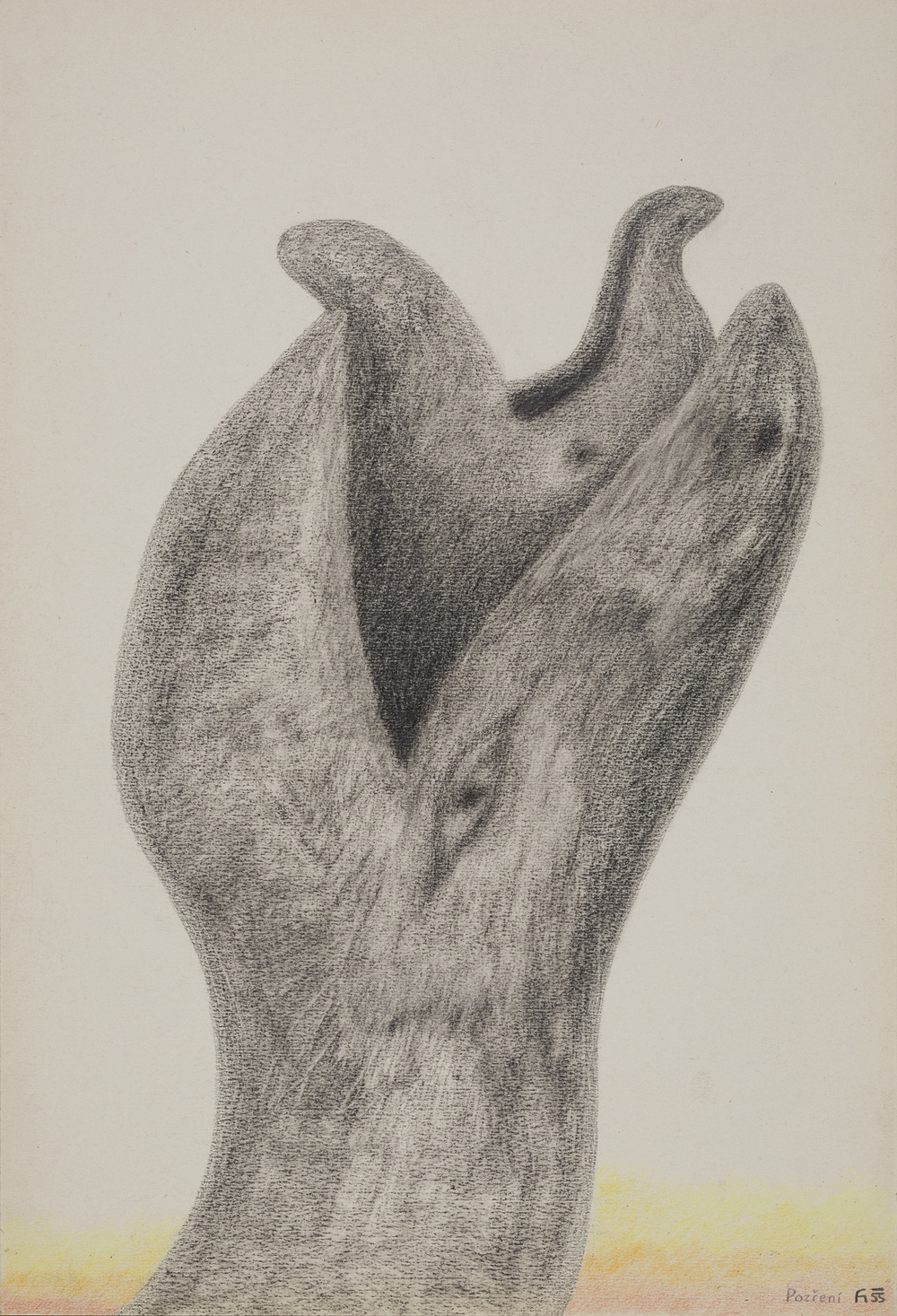 Devoured, 1955
Devoured, 1955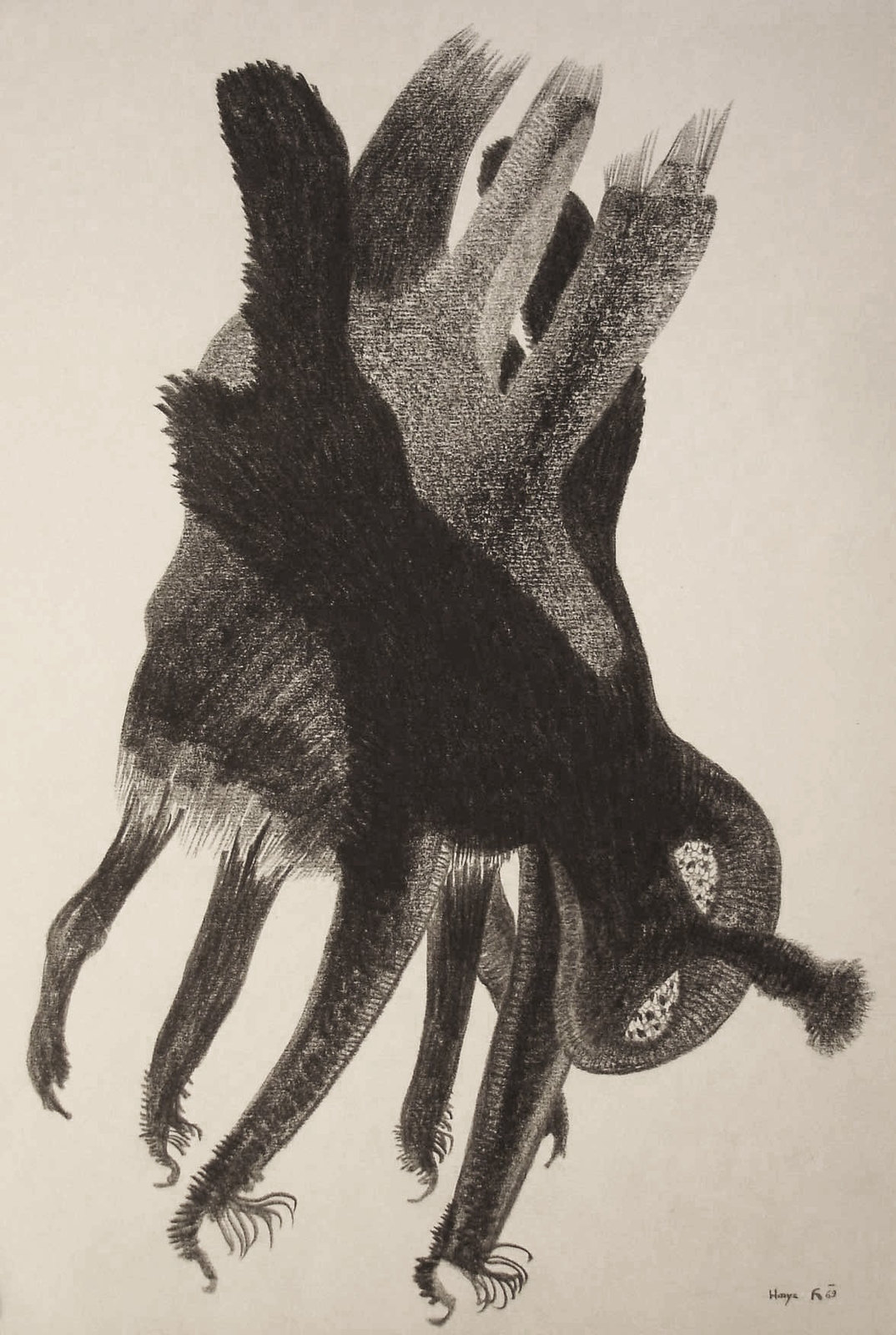 Hmyz, 1968
Hmyz, 1968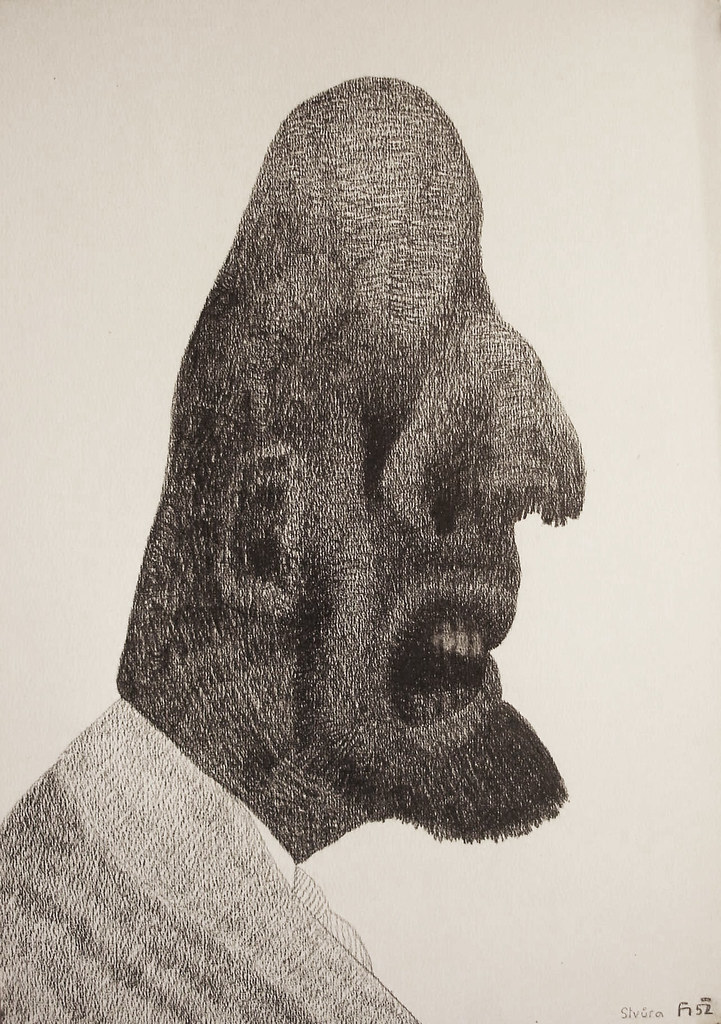 Stvura, 1952
Stvura, 1952 Lethal Deaths, 1971
Lethal Deaths, 1971 Untitled, 1949
Untitled, 1949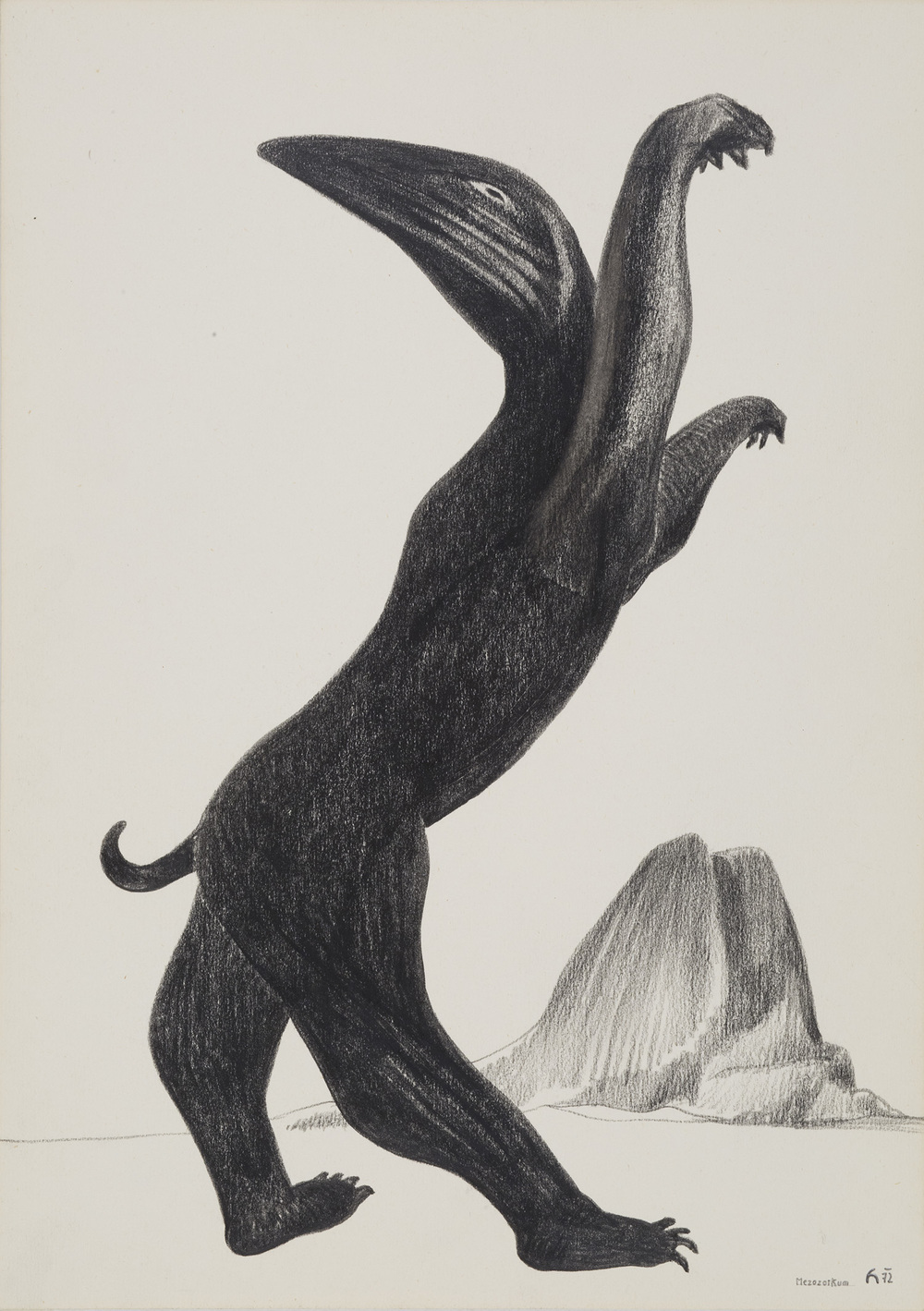 Mezozoikum, 1972
Mezozoikum, 1972"Born (1907 – 1988) into a family of artists, Karel Havlicek studied law and became a lawyer - a career he did not like. He spent most of his life in Kadan, in northwestern Bohemia. He married and had three children.
Havlicek worked for the Czechoslovakian government during World War II. The situation became emotionally and morally impossible for him, so he resigned, a political decision that marked him the rest of his life. He began drawing at this time as a way of exorcising his emotional and spiritual conflicts. Working only at night, he followed a ritual reminiscent of automatic practices. His drew without premeditation, spontaneously, as if overtaken by spiritualist production.
After 1948, he was forced to leave his job in a ceramics factory where he painted dishes, and he became a laborer. In 1948, the Czech art critic Karel Teige, a major figure in the Czechoslovak avant-garde, became interested in him and planned to organize an exhibition of his drawings, a project crushed by the political authorities. This was a profound disappointment to Havlicek. He died before knowing the freedom that came about with the Velvet Revolution."
Artworks and quotation found at the amazing Cavin-Morris Gallery additional artwork found at Galerie Gambra.

No comments:
Post a Comment